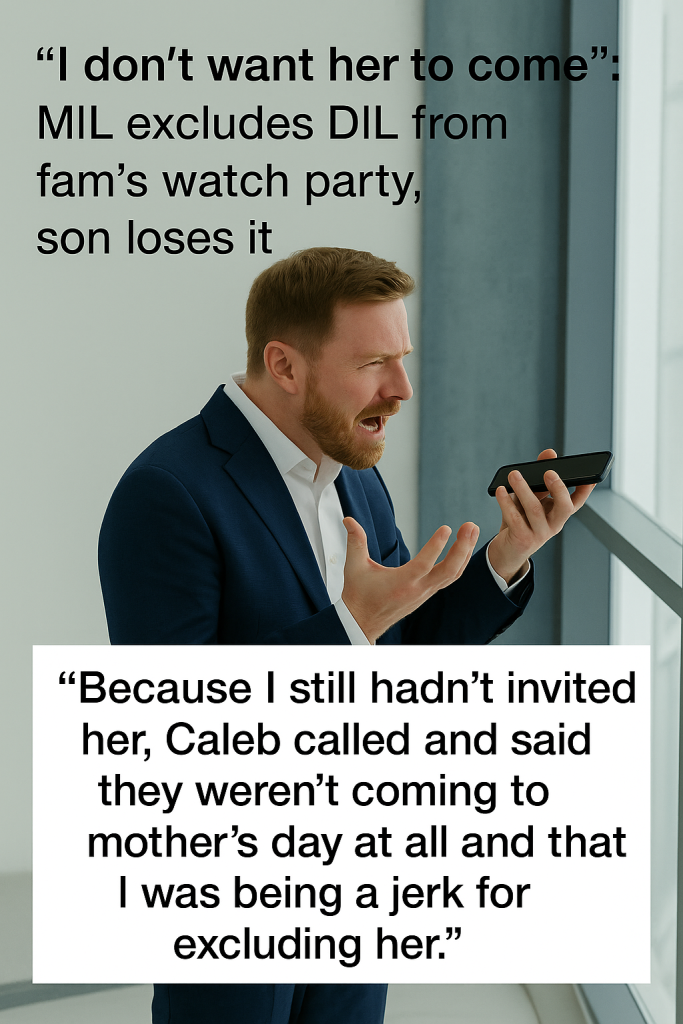A recent family dispute has captured widespread attention after a mother-in-law (MIL) reportedly excluded her daughter-in-law (DIL) from a highly anticipated family watch party, igniting tensions and prompting a strong reaction from her son, Caleb. The incident offers a poignant look into family dynamics and the challenges many face in blending new relationships into traditional family gatherings.
According to insiders, the drama unfolded when Caleb’s mother explicitly told family members that she did not want her daughter-in-law to attend the watch party—a significant event where relatives come together to enjoy and celebrate a shared interest, such as a major sports game or popular television show premiere. The exclusion of the DIL was not communicated subtly, making it clear she was unwelcomed at the celebration.
Caleb, caught in the middle, reportedly tried to maintain peace but ultimately “lost it” after realizing his mother’s refusal to invite his wife was unwavering. Sources indicate that he confronted his mother on the issue, expressing disappointment and frustration. One close family member revealed, “Because Caleb hadn’t invited her yet, his mother took the opportunity to bar her from the event altogether. When Caleb found out, he called to say they were no longer invited unless his wife was also welcome.”
The tension touches on a broader societal conversation about acceptance and respect within family structures, especially as modern families often navigate complex relationships and evolving social norms. Many people empathize with Caleb’s predicament: balancing loyalty to both his family of origin and the new family he is creating with his spouse.
Experts who study family relations suggest that conflicts like these frequently arise from underlying issues such as unresolved grudges, cultural differences, or misconceptions. The exclusion can deeply affect both the daughter-in-law and the son, straining family unity and communication.
In this particular case, Caleb’s reaction is a clear message that he values inclusivity and fairness, standing up for his partner in the face of exclusion. It is a stance that resonates with many who advocate for healthier and more open family environments.
Moderators and family counselors often advise families to address such conflicts through open dialogue and empathy, encouraging all parties to articulate their feelings and seek mutual understanding. While the immediate outcome of the watch party drama remains unclear, the incident highlights the ongoing need for communication and respect in family relationships.
The viral nature of this story online reflects how many viewers see echoes of their own experiences, fueling discussions about family loyalty, boundaries, and the importance of acceptance. Whether Caleb and his mother will find common ground remains to be seen, but the conversation sparked by this dispute underscores the complexities of modern family life.
As this story continues to circulate, it serves as a reminder that navigating family gatherings can be a delicate affair—one where kindness and inclusion can make all the difference.



